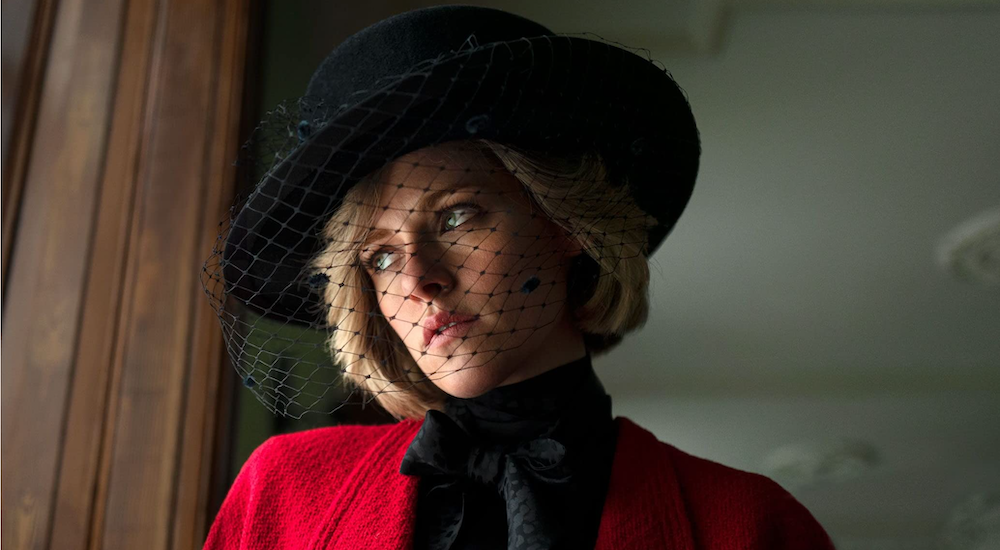Lately, you can’t seem to turn on a device without seeing something about Princess Diana. Whether it’s podcasts, television shows, stage musicals or films, the world’s obsession with Princess Di has resurged more than 20 years after her tragic death. Spencer is yet another vehicle to showcase our fascination with the late British royal and gives Kristen Stewart a chance to aim for the fences as the Princess of Wales. Perhaps it’s the glut of Diana content but Pablo Larrain’s Spencer fails to say anything new about the princess, hard as both he and Stewart try to break new ground.
From the title of the film alone it’s clear that Spencer is about Diana as an isolated outsider. Why else highlight her maiden name as a “commoner”? Similar to his past film Jackie, we only see a small slice of Diana’s life portrayed in the film. In this case, it’s Christmas 1991, Diana’s last Christmas as part of the Windsor family, and we can see that her situation is crumbling quickly. Very little context or history is given and instead the film relies on its audience to already be familiar with the story. Perhaps it’s the only upside to premiering after the very successful fourth season of Netflix’s The Crown. From the beginning, the film makes sure to include a disclaimer that this is a “fable based on a true tragedy”, which feels more like a way to avoid legal action than an artistic statement.
Of course, the most highly anticipated aspect of Spencer is Kristen Stewart’s portrayal of the beloved blonde. Ever since she broke through on Twilight, Stewart has fought being pigeon-holed and mostly stuck to the indie scene to earn some artistic credit on the resume. Still, her acting style is consistent across roles, often veering into twitchy movements, closed body language, and stuttering speech. While it’s clear that Stewart is pushing outside of her comfort zone here, her usual tells break through and her accent just isn’t strong enough to completely fade into the role. While the wig and costume design do a lot of heavy lifting, it just isn’t enough to make you forget you’re watching Kristen Stewart. Other cast members mostly fade into the background as the film squarely focuses on Diana, though Timothy Spall manages to stand out as the gruff Major Alistair Gregory and Sally Hawkins shines in her few scenes as Maggie, one of Diana’s staff and confidants. While it’s frustrating to not get more time with familiar royals, it effectively illustrates how isolated Diana feels among them.
There’s an uncomfortable feeling that permeates the film and it isn’t just watching Diana unravel in a cold and grandiose house. Spencer purposely avoids accuracy, instead choosing to visually represent Diana’s potential thoughts and feelings about her situation. The premise feels grotesque, glamorizing a real woman’s trauma and pain as it invites the audience to peer in with a magnifying glass, to goggle at a woman’s hysteria, just like the British press did during her actual life. Are we supposed to feel sorry for her? Sympathize with her? We all know this fairy tale doesn’t end well. It feels almost cruel to still be mining one woman’s tragic life for potential awards.
Spencer desperately wants to find new ground to explore in the story of Diana, Princess of Wales. Larrain and Stewart have no qualms about heightening emotions and veering from reality to tell a more artistic, almost horror-like version of very familiar events. Unfortunately, while the visual language may be different, the story of Diana has been told so many times (and at least a few times by the woman herself) that Spencer fails to say anything new or interesting. Anchored by an earnest performance from Stewart, it favors style over substance. But hey, at least it’s better than the stage musical.

